We Stand Together Supporting Our Families and Our Jobs
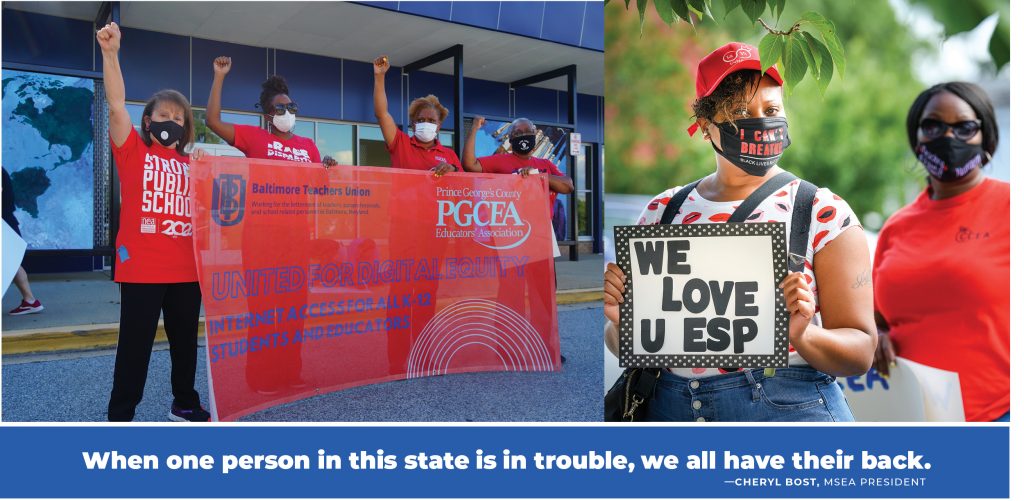
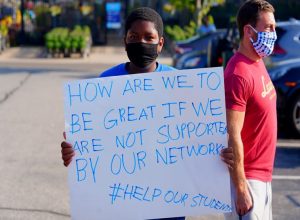
Educators all across the state—from rural western counties through the urban communities in central Maryland to the far south and Eastern Shore—are fighting hard for students and each other. As reopening and recovery plans are rolled out—and sometimes rolled back in again—fairness, equity, and clarity are not always at the forefront of decisions leaders make. The decisions, and the challenges they create, will take time to address. But right now, the lives and livelihoods of educators, students, and their families are at the forefront. And MSEA and local unions are fighting hard in every county, with members leading the way.
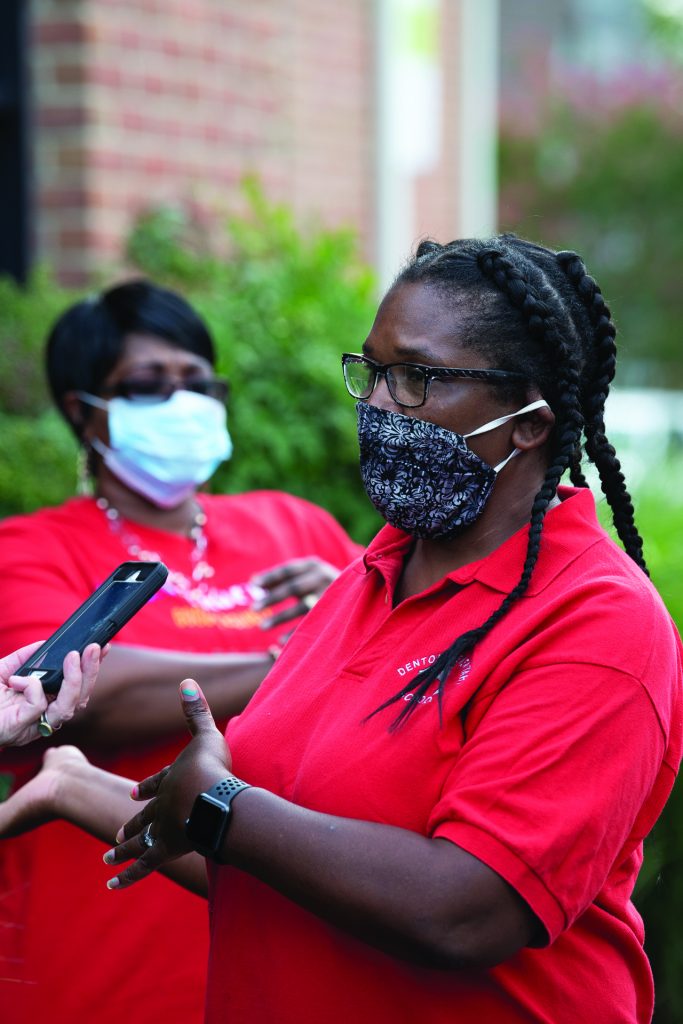
“We all have so much impact. We build relationships with students one moment at a time, one day at a time. For us to be told in one phone call that ‘we don’t need you at this time and that it is time to go’ was disheartening,” said Pam Smith (right). “It deeply saddens me that I won’t be able to follow through with my students of last year as this difficult year begins.”
Smith is a student assistance monitor at Denton Elementary School with 22 years of service to Caroline County. She was among 83 county support professionals laid off from their jobs with no warning in late August.
That phone call changed Smith’s life and the lives of her fellow support professionals in Caroline County. “We’re not where we are supposed to be. A lot of us lost insurance or have to pay for it out of pocket. Where’s that extra money going to come from now?”
At a September 1 rally organized by the Caroline County Educators’ Association (CCEA)—a merged local union of support professionals and certificated staff—members gathered in front of the Caroline County Board of Education to support ESPs and teacher safety during distance learning.

Like other support professionals around the state, ESPs in Caroline County are eager to be back, safely, with their students. In the meantime, they have looked to their boards of education to recognize the value in deploying them to work in break-out groups and other special assignments. And teachers—who champion their support colleagues as the cogs that keep the gears moving in every school—are flummoxed by district inaction.
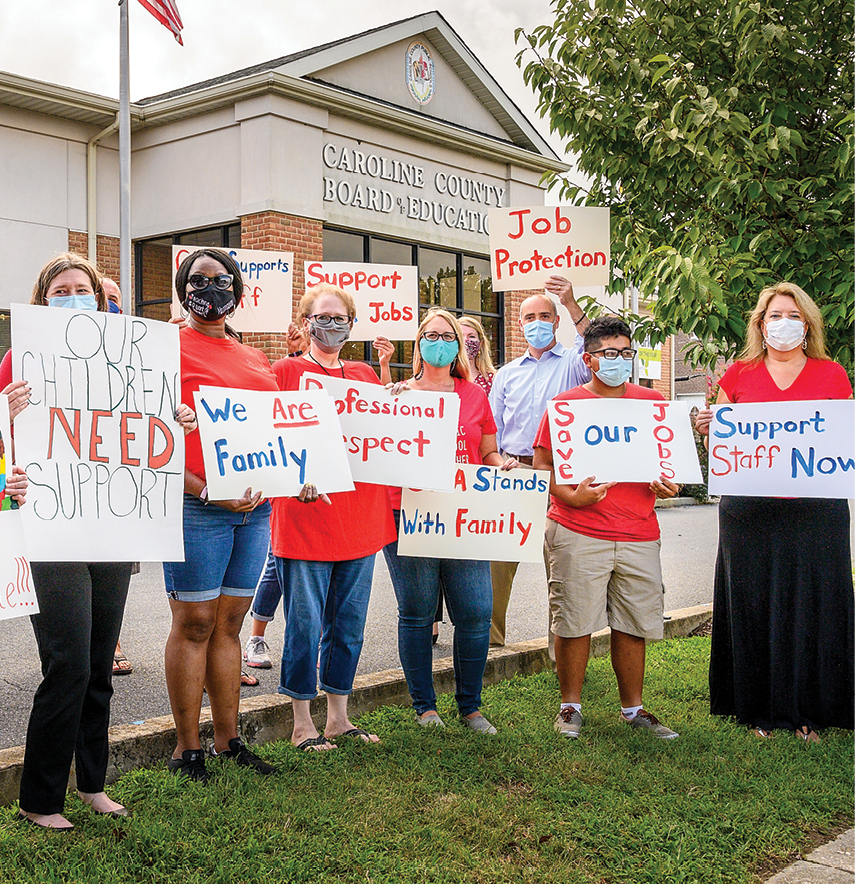
“We can’t do our jobs without the support staff. If we are really here for our kids, these support staff would not be laid off. In the springtime we learned how we could utilize support staff skills and now we need them more than ever,” said Amy Baughman, CCEA vice president.
All over the state, union leadership is advocating for thoughtful, safe, and realistic reopening plans (see facing page for district reopening schedules), but like the state’s bungled start, many districts are not making reasonable or timely decisions or demands.
“We’ve had enough of being ignored. We’ve had enough of being on the back burner. We are here in solidarity and union for our students,” said Amy Anderson, CCEA president. “We want to be sure that our ESPs are back to work and we want our teachers to have more flexibility in telework.”
ACCESS FOR ALL
Students, parents, and community members joined members of the Prince George’s County Educators’ Association (PGCEA) and Baltimore Teachers Union on August 19 to rally around what has become a critical issue of internet access for educators and students across the country. They demanded equitable access for all educators and families.
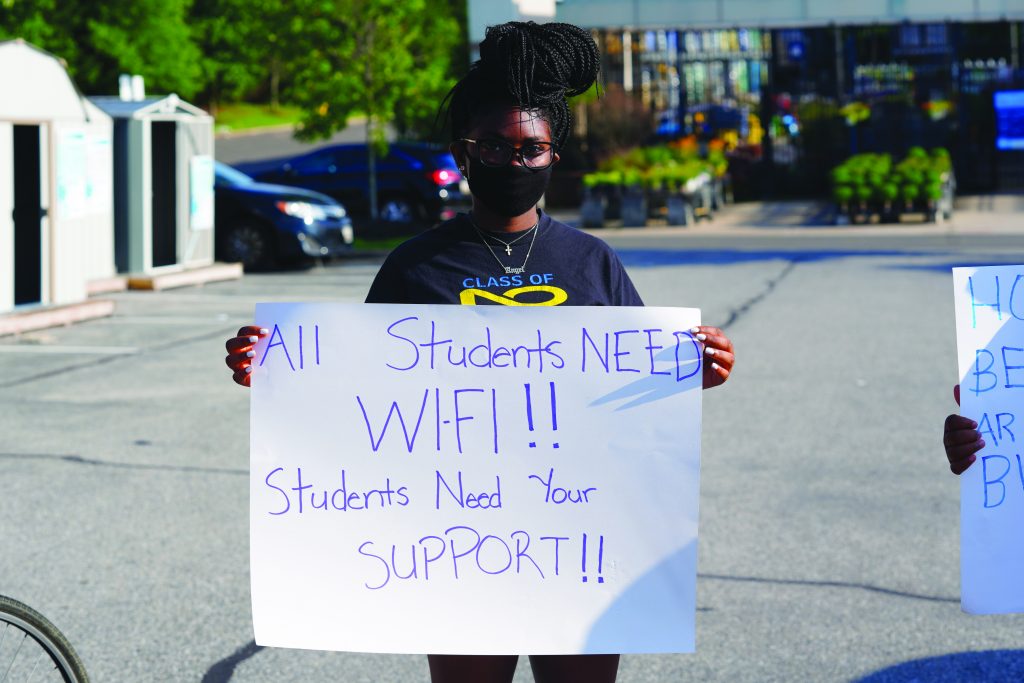
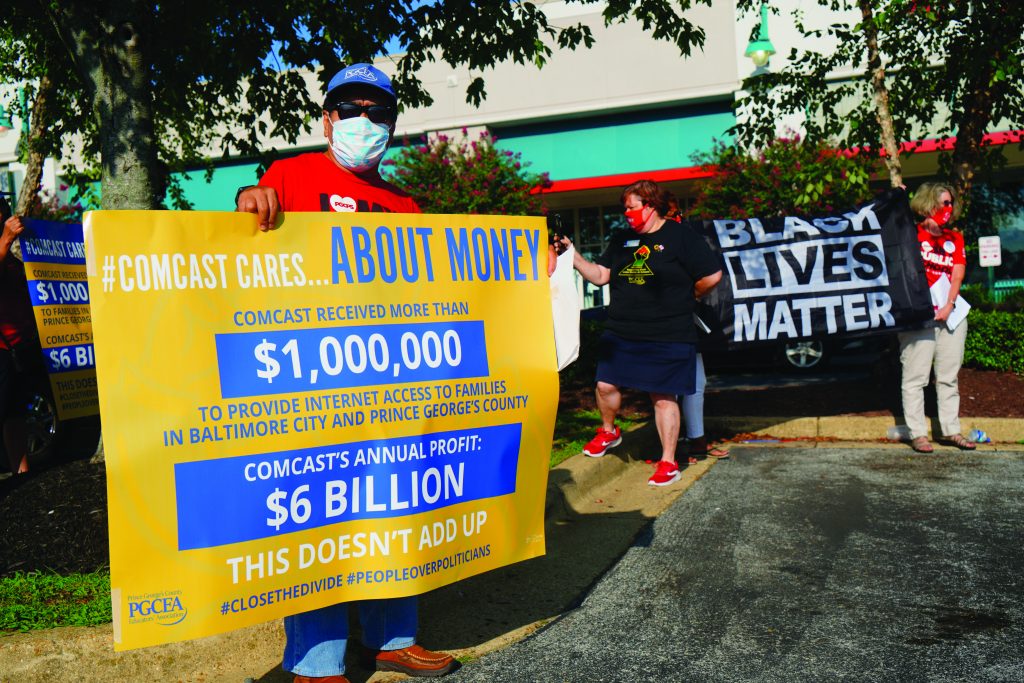
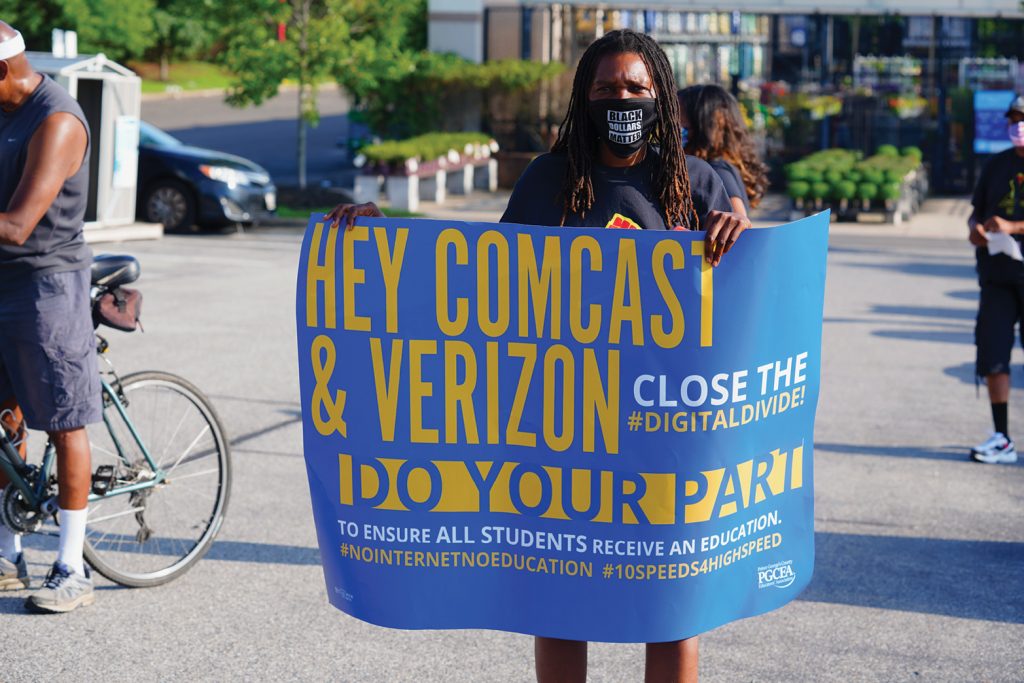
Black and brown families and families in rural parts of Maryland have struggled with sufficient internet access since quarantine began in March. These issues are further exacerbated now due to more hours of instruction and a need to stay connected longer. “I have to wonder how many students will be able to participate in the education that they need. The education that is their right,” said Shari Flynn, a PGCEA member.
MSEA President Cheryl Bost recently asked for the help of House Majority Leader Rep. Steny Hoyer and Rep. Anthony Brown with expansion of the E-Rate program, which supports improved internet access in schools and libraries to upgrade technology and connectivity for rural and low-income communities. “I want to see the intervention of both Gov. Hogan and Supt. Salmon to help negotiate with Comcast and Verizon at the state level. Now we have each district superintendent negotiating for hotspots with these huge corporations. It’s obvious that they could apply more pressure and offer more buying power at the state level,” Bost said.
Photos by Stephen Cherry and Randall Pike

